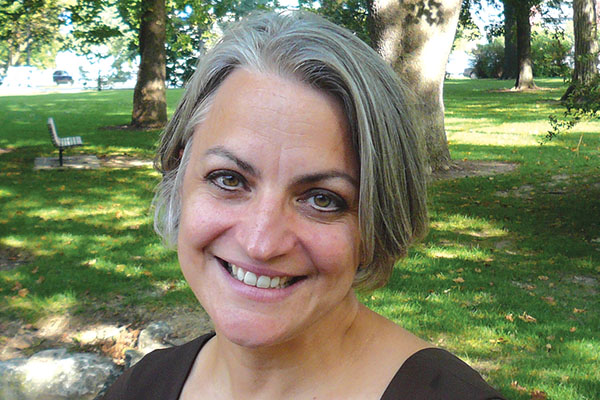King Plans to Expand Diversity of Authors, Viewpoints in Perspectives

APS Fellow Laura A. King in January will begin a 4-year term as editor of Perspectives on Psychological Science. King is Curators’ Distinguished Professor of Psychological Sciences at the University of Missouri. She researches personality psychology, well-being, motivation, meaning in life, individual differences in intuitive information processing, and narrative approaches to personality and identity, among other topics. She is the author of two psychology textbooks and numerous scholarly articles and book chapters. She has served as associate editor for a number of journals in personality and social psychology and has served as editor of the Journal of Personality and Social Psychology. The Observer recently asked King a few questions about her plans for the journal.
What goals do you have for the journal under your tenure? Do you plan any significant changes or additions to the journal itself or to the types of articles being published?
My goals are to steer the journal toward increased representation of scholars from broad areas of psychology. I hope that everyone comes to see Perspectives as I do — as the place where all of us, whatever our specialty, are once again just “psychology majors”. So, my hope is that the articles will reflect the intellectual diversity of our science. I hope to increase, as well, the diversity of authors and perspectives. I have always felt that science is a conversation. To me, that is nowhere more apparent than in the pages of Perspectives. That conversation includes many people from all areas and all levels of seniority, and all kinds of ideas. I welcome and actively invite folks to let me know what they are longing to hear about, what they themselves would like to say, and to “host” this fascinating, irresistibly interesting conversation as editor of Perspectives. I want to be surprised, engaged, and fascinated by good ideas.
One of the things that makes this journal stand out is that it, like all of APS’s journals, captures the full scope of psychological science. How will you preserve that breadth during your editorship?
I teach introductory psychology. That means that I, like many others, have had to master and share research from all of our science. Although I am a personality/social psychologist who studies well-being, I am a generalist in terms of my interests in psychological science. I love reading work from areas outside my own. I would give a special shout out to comparative cognition — I believe that some of the work being done in this area is the most interesting and most provocative a person could encounter. Sometimes, to me, it has seemed that researchers in areas that are easiest to describe in brief are the ones who publish in the most general journals. I hope to change that perception so that everyone with something important to say finds a place in Perspectives. I am also interested in hearing about the controversies that exist in fields outside my own and hope to highlight these in Perspectives. As a personality psychologist, one has little choice but to develop some expertise across psychology because our field is so broad. So, I see it as a true pleasure to get the chance to highlight important issues across all of psychological science.
What do you want prospective authors to consider when thinking about submitting to the journal? In addition to meta-analyses and longer, integrative review articles, are there other types of submissions you would like to see?
Quite frankly, I would love for people to consider the most interesting things they think, know, or suspect and consider writing these for Perspectives. I would love to publish dialogues that engage and model dispassionate discourse. Following on [Past Editor] Bobbie Spellman’s initiative, I am happy to consider replications for the journal. I would also love to feature a scholarly discussion of replication issues and what they mean for our science. Indeed, whenever conversations about these issues occur on Twitter or in blogs, I cannot help but think how much better it might be — how many more people would be reached, how many viewpoints might be shared — if the ideas were subjected to peer review and published in an outlet like Perspectives. So, I suppose I would like to issue not only an invitation but a challenge to authors who believe they have something important to say on this issue. Let’s move some of this intellectual heat to a scholarly outlet and see if we cannot have a conversation that brings light to our shared interest in excellent science.
Do you plan to develop special features or series in Perspectives? If so, what topics will you be focusing on?
In keeping with my goal to enhance diversity not only in the intellectual breadth of Perspectives but also in the authors and viewpoints, one of my goals is to feature brief contributions by individuals from underrepresented groups, sharing their strategies for success. I cannot tell you how many times I have been in conversations with people on the issue of the dearth of women and minorities in editorial work. “Why,” people ask, “don’t women/minorities edit, review, join ed. boards, etc.?” My hope is to bring attention to those who do do these things, and do them well, so that others can come to appreciate the place of engaging on this side of the publication process in a rich scholarly career.





APS regularly opens certain online articles for discussion on our website. Effective February 2021, you must be a logged-in APS member to post comments. By posting a comment, you agree to our Community Guidelines and the display of your profile information, including your name and affiliation. Any opinions, findings, conclusions, or recommendations present in article comments are those of the writers and do not necessarily reflect the views of APS or the article’s author. For more information, please see our Community Guidelines.
Please login with your APS account to comment.